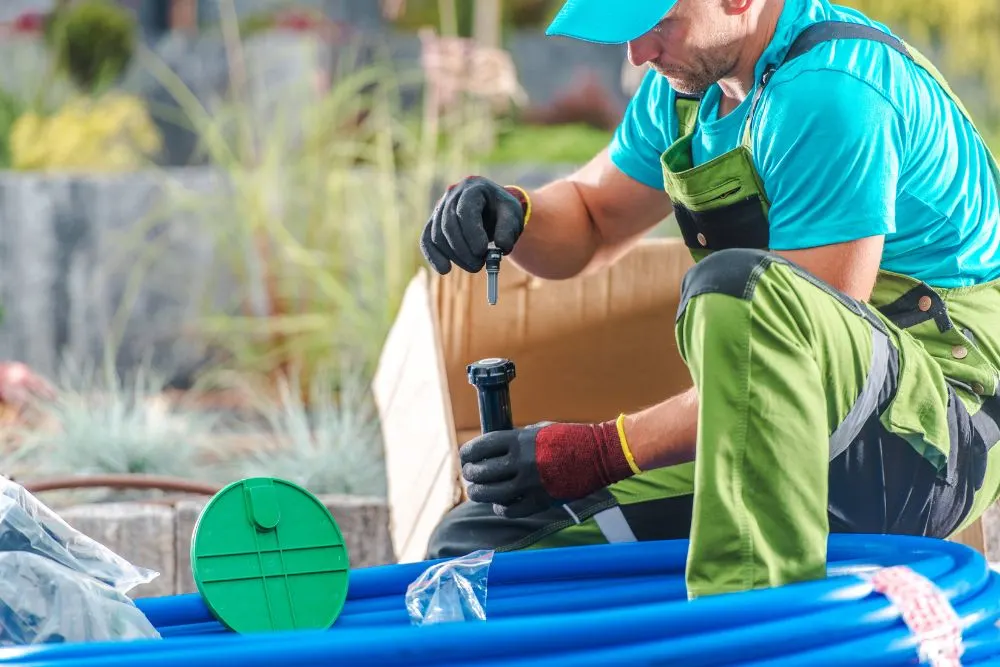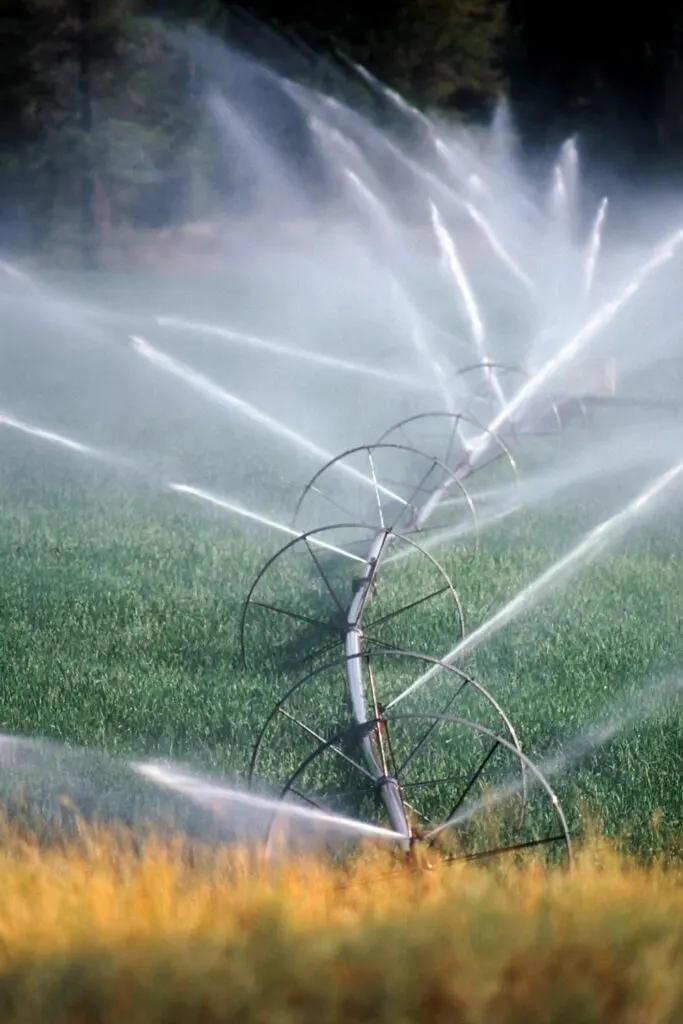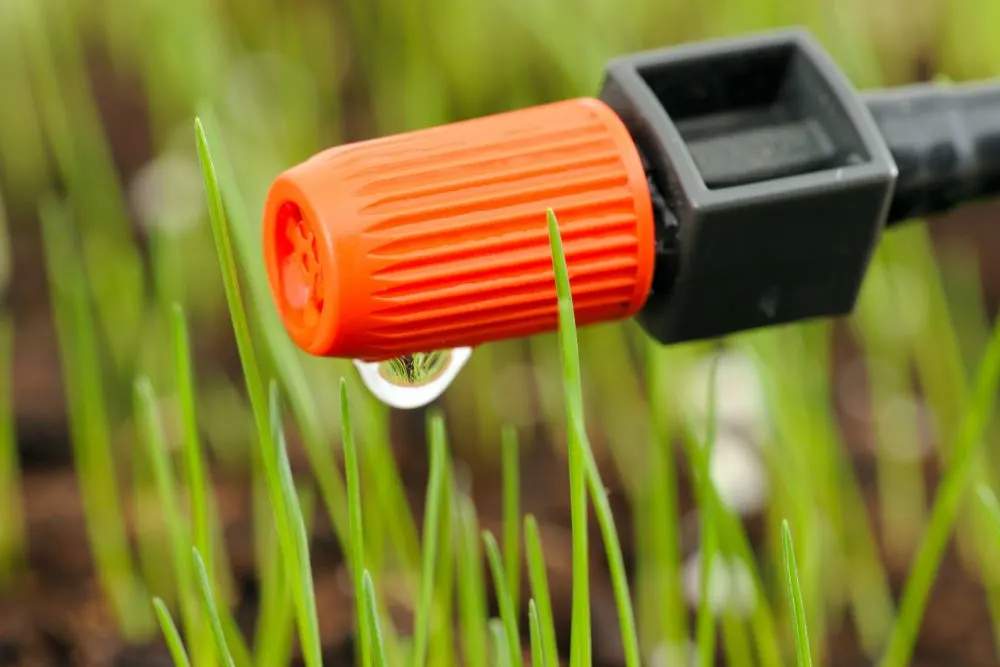Starting an irrigation business can be a lucrative opportunity for those interested in providing essential services to agriculturalists, developers, and homeowners alike.

As water conservation becomes a growing concern in many regions, the demand for efficient irrigation systems and professional installation is expected to rise. In this article, we will share valuable insights on how to launch an irrigation business, from legal aspects and initial capital investment to choosing the most suitable technology and marketing techniques.
Being well-prepared is the key to any successful business endeavor, and the same is true for launching an irrigation company. One of the first things you need to do is create an in-depth business plan tailored to your specific market needs and available resources. This plan will help you better understand the scope of your new venture, as well as providing a clear roadmap for growth and expansion. Researching the initial and ongoing costs of an irrigation startup will be essential to accurately estimating the required investment for this type of enterprise.
Once you have developed a comprehensive business plan, think about the legal aspects of starting your new company. This includes formalizing your business into a legal entity and registering for taxes. Additionally, it is crucial to open a business bank account and establish proper accounting practices to ensure your financial obligations remain organized and transparent. With a solid foundation in place, you’ll be well-positioned for success as you embark on your journey to build and grow a prosperous irrigation business.

Understanding Irrigation Business Fundamentals
Starting an irrigation business requires a deep understanding of industry fundamentals. This includes having knowledge about the different types of irrigation systems, water conservation solutions, and the distinction between commercial and residential markets.
Types of Irrigation Systems
There are various types of irrigation systems available on the market, each with unique advantages depending on the needs of the clients. These include:
- Drip irrigation: A highly efficient method that delivers water directly to the plants’ roots, resulting in minimal water wastage. This system is suitable for gardens, greenhouses, and orchards.
- Sprinkler systems: Consisting of sprinklers mounted on pipes, these systems disperse water evenly over the land, making them suitable for lawns, sports fields, and large-scale agricultural projects like farms.
- Surface irrigation: The oldest form of irrigation, where water flows on the ground surface to reach plants. Surface irrigation is ideal for farmers with flat, large fields and a sufficient water supply.
Water Conservation Solutions
For an irrigation business to be successful in today’s environmentally conscious world, adopting water conservation solutions is crucial. Here are some key strategies to consider:
- Smart irrigation controllers: These devices use weather data to determine the optimal watering schedule, preventing overwatering and water wastage.
- Rainwater harvesting: Encourage clients to collect and store rainwater, which can be used for irrigation purposes during dry periods.
- Soil moisture sensors: Installing soil moisture sensors can help ensure water is only applied when needed, further reducing water usage.
Commercial vs Residential
Understanding the differences between the commercial and residential markets is vital for the growth of your irrigation business. While both sectors require irrigation systems to maintain their landscapes, their needs and preferences may vary significantly.
Commercial clients often demand larger, more complex irrigation systems for parks, corporate campuses, and golf courses. They typically prioritize water conservation and cost reduction, requiring customized solutions tailored to their specific needs.
Residential clients, on the other hand, usually seek user-friendly and hassle-free systems, such as standard sprinkler systems for lawns and gardens. Aesthetics and ease of maintenance are key factors in this market.
By having a thorough understanding of the irrigation business fundamentals, you’ll be well-equipped to cater to the unique requirements of each client and establish a successful enterprise in the industry.

Planning Your Irrigation Business
Creating a Business Plan
A well-thought-out business plan is essential for starting an irrigation business. It serves as a roadmap, outlining your goals, target customers, and strategies to reach them. Here’s how to get started:
- Executive summary: Provide an overview of your business, products or services, and target market.
- Company description: Describe your company’s mission, vision, and values.
- Products and services: Detail the products or services you plan to offer, focusing on their benefits to customers.
- Market analysis: Conduct a thorough analysis of the market, including size, trends, and growth opportunities.
- Competitive landscape: Identify your competition, their strengths and weaknesses, and how you plan to differentiate yourself.
Market Analysis and Competitive Landscape
Performing a market analysis enables you to identify the demand for irrigation services in your area and assess the competitive landscape. This will help you make informed decisions regarding your target customers, pricing, and service offerings. Factors to consider:
- Market size: How large is the irrigation industry in your region?
- Target customers: Who are your potential clients, e.g., residential, commercial or agricultural consumers?
- Growth potential: Are there opportunities for expansion in the local market?
- Competition: Identify the key players in the industry, their services and pricing.
Setting up a Business Model
Your business model describes how your irrigation business creates, delivers, and captures value for your customers. It is crucial to have a clear and sustainable business model in place to ensure the long-term success of your company. Key aspects to consider:
- Business structure: Choose the appropriate legal structure for your business, such as a sole proprietorship, partnership, or LLC.
- Revenue streams: Identify how you will generate income, e.g., installation, maintenance, and repair services.
- Pricing strategy: Develop a competitive pricing model based on your target customers and the value you provide.
- Service offerings: Determine the type of irrigation systems and services you’ll offer, e.g., sprinklers, drip systems, or water management solutions.
- Promotions and marketing: Plan how to reach potential customers and promote your business using both online and offline channels.
By combining a well-structured business plan, a thorough market analysis, and a carefully designed business model, you’ll have a solid foundation for launching and growing a successful irrigation business.

Starting Your Irrigation Business
Starting an irrigation business involves several steps, including choosing a business name, selecting a business entity, obtaining necessary permits and licenses, managing accounting tasks, and setting up a business bank account. This section will guide you through these essential steps.
Choosing a Business Name and Registering
A crucial first step in setting up your irrigation business is choosing an appropriate and unique business name. Register for taxes and ensure that the name is available for use in your area. Once you’ve found a suitable name, register it with the appropriate government agency to secure your business identity.
Selecting a Business Entity
There are several types of business entities available, including sole proprietorship, partnership, limited liability company (LLC), and corporation. The type of entity you choose will determine your personal liability in case your irrigation business is sued. Establishing a limited liability company (LLC) or a corporation can offer you protection from personal liability, while sole proprietorships and partnerships may not offer the same level of protection.
Obtaining Permits and Licenses
Certain permits and licenses may be required to operate your irrigation business legally. Some necessary permits may include a business license, a contractor’s license, and permits related to water usage and environmental regulations. Check with your local government and industry associations to determine the specific permits and licenses your irrigation business needs to obtain.
Managing Accounting and Taxes
Proper accounting is critical for any business, including an irrigation business. You’ll need to track your revenue, expenses, and ensure that all tax obligations are met. It’s recommended to consult with a certified public accountant (CPA) or professional bookkeeper to help you set up an effective accounting system and stay in compliance with tax regulations.
Setting up a Business Bank Account
Setting up a business bank account for your irrigation company is an essential step in separating your personal finances from your business finances. This separation will make it easier to manage your business’s finances, protect your personal assets, and comply with IRS requirements. Choose a bank that best fits your business needs and consistently review your account activity to ensure accurate record-keeping.
Raising Capital and Managing Finances
Starting an irrigation business requires careful financial planning and capital. In this section, we will cover the aspects of estimating startup costs and ongoing expenses, securing funding options, and setting up financial projections and budgets.
Estimating Startup Costs and Ongoing Expenses
On average, starting an irrigation company can cost more than $10,000. Some of the initial costs include:
- Business formation fees
- Equipment purchases
- Vehicle costs (if needed)
- Marketing and website design
- Insurance and licensing
Ongoing expenses are also important to consider:
- Payroll costs
- Vehicle maintenance
- Equipment repairs and servicing
- Advertising and marketing costs
- Utilities
- Office supplies
It is crucial to have a clear understanding of these expenses to ensure your irrigation business’s profitability in the long run.
Securing Funding Options
Once you have estimated the startup and ongoing costs, it’s time to look for funding options. Raising capital for your irrigation startup can be done through several avenues:
- Personal savings
- Loans from banks or credit unions (consider interest rates)
- Crowdfunding
- Venture capital
- Friends and family contributions
- Business grants
Evaluate each option’s pros and cons before choosing the best one for your business.
Setting up Financial Projections and Budgets
Developing accurate financial projections and budgets is vital for the success of your irrigation business. Financial projections provide a roadmap for growth and help you make informed decisions.
Here are some tips for creating financial projections:
- Estimate revenue: Based on your research and business plan, make an educated guess about your monthly or yearly sales.
- Calculate expenses: Identify all fixed and variable expenses that your irrigation business will incur.
- Project cash flow: Compare your estimated revenue with expenses to gauge your cash flow situation.
- Create a break-even analysis: Determine how long it will take for your irrigation business to cover all startup costs and become profitable.
- Revise projections: Make adjustments to your projections based on real-world data as your business progresses.
Remember, starting and managing an irrigation business is a commitment that requires proper financial planning and capital management. By estimating costs, securing funding, and setting up financial projections, you’ll be well on your way to a successful venture.
Acquiring Necessary Equipment and Supplies
Starting a successful irrigation business requires acquiring the proper equipment and supplies. In this section, we will discuss essential irrigation equipment and the tools needed for maintenance and repairs.
Essential Irrigation Equipment
When setting up an irrigation business, it is important to invest in high-quality equipment that is built to last. Some of the primary irrigation equipment you will need includes:
- Sprinklers: These are necessary for distributing water evenly across the designated area.
- Hoses: Required for connecting sprinklers and transporting water.
- Pumps: Used to move water through the irrigation system.
- Valves: These control the flow of water and can be adjusted to ensure optimal distribution.
- Controllers: Necessary for automating the irrigation process and monitoring water usage.
It is crucial to purchase the appropriate equipment for the specific services your business will offer. This can include anything from residential lawn irrigation to commercial agriculture systems. Researching different brands and models can help determine the best tools for your needs.
Maintenance and Repair Tools
Regular maintenance and timely repairs are essential to keep your customers’ irrigation systems functioning properly. To do this effectively, it is essential to have a comprehensive set of maintenance and repair tools on hand, such as:
- Pipe cutters: For cutting and resizing pipes.
- Pipe wrenches: Useful for tightening and loosening pipe connections.
- Trenching shovels: Necessary for digging trenches to install or repair underground pipes.
- Pressure gauges: These help monitor water pressure throughout the system.
- Multimeters: Used to test electrical components, such as valves and controllers.
In addition to the tools mentioned above, it is beneficial to have a spare parts inventory readily available. This can include items like extra sprinkler heads, valves, and O-rings, ensuring that repairs can be made quickly and efficiently.
Acquiring the necessary equipment and supplies is a vital aspect of running a successful irrigation business. By investing in high-quality equipment and keeping a reliable set of maintenance and repair tools on hand, you can provide efficient and professional services to your clients.
Marketing Your Irrigation Business
One of the main aspects of running a successful irrigation business is implementing effective marketing strategies. In this section, we will explore ways to create a solid foundation for promoting your business.
Creating a Website and Digital Presence
A professional website is essential for establishing credibility and showcasing your services. A user-friendly site should include essential information about your business, partners, services, and contact details. Don’t forget to optimize your website for search engines, as this will help potential clients find your business online. Invest in obtaining professional branding materials such as logos and color schemes to increase overall appeal.
Advertising and Promotions
To reach your target audience, it’s crucial to utilize various advertising channels. Traditional advertising methods such as print ads, billboards, and direct mailers may still be valuable depending on local demographics. However, digital marketing campaigns can reach a broader audience at a lower cost. Consider using targeted Google Ads or social media promotions to drive leads. Market research is essential to understanding your target market’s preferences and expectations when planning your advertising efforts.
Building a Social Media Presence
Social media is a powerful tool for marketing your irrigation business. Identify the social media channels where your target audience is most active, and establish a presence there. Engage with your audience by sharing high-quality images of your products, updates on your services, and useful industry-related information. Consistently maintaining an active presence will build trust with potential customers and increase overall brand recognition.
Customer Retention and Referrals
Happy customers are more likely to refer your irrigation business to their friends, family, and network. Investing in customer retention strategies can lead to more referrals and repeat business. Consider offering loyalty programs, exclusive promotions, or discounts for returning customers. Proactively seek feedback from clients and address any concerns or areas for improvement.
Engaging with the local community is another effective strategy. Participate in neighborhood events and sponsor local projects, as this helps establish your business as an integral part of the community, ultimately leading to more client referrals.
Remember, consistency is key in maintaining your marketing efforts. As you learn more about your target market and adjust your strategies, your irrigation business will grow and thrive.
Managing Labor and Operations
Hiring and Training Staff
When starting an irrigation business, it’s crucial to hire and train a skilled staff to ensure efficient operations. Begin by creating a list of required positions such as technicians, sales representatives, and office managers. Develop comprehensive job descriptions, which outline the necessary skills and qualifications for each role.
Next, create a comprehensive training program for new employees. This can include hands-on training, online courses, and mentorship programs. Be sure to also provide ongoing learning opportunities to keep your staff up-to-date with industry trends and advancements.
Implementation of Irrigation Software
Integrating irrigation software into your business operations is an excellent way to streamline and automate various tasks. There are numerous options available for managing projects, scheduling, invoicing, and customer relationship management. Some essential features to consider in irrigation software include:
- Project management: Efficiently track project progress and allocate resources accordingly.
- Scheduling: Automatically schedule jobs and assign technicians in real-time based on their availability and expertise.
- Invoicing: Generate accurate invoices that clearly outline the services provided and allow for secure online payments.
- Customer relationship management: Keep track of customer information, site details, and service history, allowing for personalized and timely communications.
Implementing irrigation software in your business can save time, reduce errors, and streamline operations, ultimately enhancing your bottom line. Don’t forget to provide proper training and support to staff on how to use the software effectively.
Remember, successfully managing labor and operations in your irrigation business requires a strategic approach to hiring and training staff, as well as implementing efficient tools such as irrigation software. By doing so, you can ensure smooth operations and long-term success in the industry.
Protecting Your Irrigation Business
Deciding on Business Insurance
Selecting the right business insurance is crucial for safeguarding your irrigation enterprise against unforeseen events. While there are multiple types of insurance, general liability insurance is essential for most businesses. This insurance covers accidents, injuries, and damage caused by your company’s operations.
Moreover, workers’ compensation insurance is fundamental if you have employees, as it caters to medical expenses and lost wages for work-related injuries. For added protection, you may also consider purchasing commercial auto insurance, especially if you use vehicles for your irrigation business. It covers bodily injury, property damage, and collisions involving your fleet.
Maintaining Legal Compliance
Establishing a legal entity such as a limited liability company (LLC) or corporation is critical in protecting your personal assets from any potential lawsuits. This structure separates your business affairs from your personal ones, limiting any financial liability associated with your irrigation company.
To remain compliant, ensure you have the necessary permits and licenses to operate your irrigation business. Research any local, state, or federal requirements that may apply to your industry. Remember, non-compliance can result in legal penalties and fines.
Keep track of your financial transactions and tax obligations for smooth operations. Proper bookkeeping and tax management help maintain your legal compliance, mitigate risks, and safeguard your irrigation business from potential hardships.
In summary, protecting your irrigation business involves obtaining the right business insurance, forming a limited liability company (LLC), and maintaining legal compliance. By adhering to these strategies, you can minimize risks and safeguard your personal assets from any liabilities associated with your irrigation ventures.
